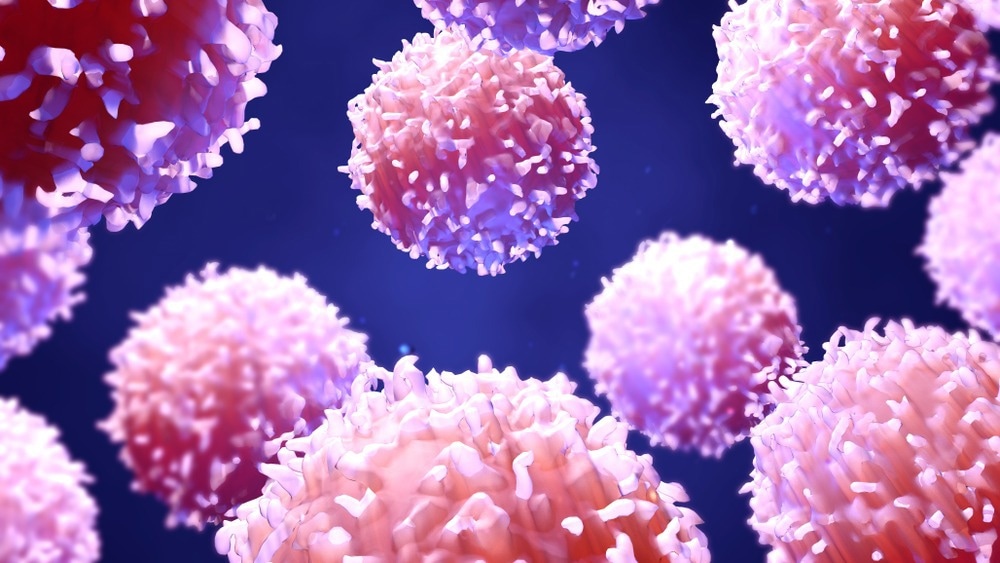The characteristics of circulating T follicular helper cells in COVID-19 patients across mild to severe disease

In a recent study posted to the medRxiv* preprint server, researchers found that late generation of functional severe acute respiratory syndrome coronavirus 2 (SARS-CoV-2)-selective circulating T follicular helper (cTfh) cells correlated with severe illness.

Background
The SARS-CoV-2 infection leads to CoV disease 2019 (COVID-19), associated with a wide range of clinical outcomes spanning asymptomatic to severe illness, including fatal respiratory failure. Although immunopathology plays a significant role in COVID-19, an understanding of how immune variances impact illness severity is still lacking. Indeed, recognizing the characteristics of longitudinal immune reactions among COVID-19 patients may help in comprehending, even forecasting the severity of the disease and developing more potent therapeutics and vaccines.
Further, coordinated cellular contacts between Tfh and B cells are necessary for efficient humoral immune reactions. It is uncertain, though, if this interaction is compromised and linked to the disease severity of COVID-19.
About the study
In the present study, the scientists analyzed longitudinal acute and recovered blood samples from 49 SARS-CoV-2 patients with mild to severe disease. The team compared the functionality of cTfh cells in acute COVID-19 patients throughout disease severity. They examined the features of cTfh cells in COVID-19 patients with mild to severe illness, longitudinally from acute infection to three and eight months of recovery.
Multiple longitudinal blood samples were taken across the course of acute, symptomatic COVID-19 and convalescence between three and eight months after the onset of symptoms. As a baseline comparison, identical samples from 20 pre-pandemic healthy controls (HCs) with gender and age matching were employed. Peripheral blood mononuclear cells (PBMCs) from 41 SARS-CoV-2 patients and 20 HCs were examined by flow cytometry to comprehend the longitudinal dynamics of cTfh cell features in COVID-19 patients throughout illness severity, from acute disease to recovery period.
The frequency of blood plasmablasts (PB) and longitudinal plasma antibody concentrations against SARS-CoV-2 receptor-binding domain (RBD) and spike (S) by enzyme-linked immunosorbent assay (ELISA) was examined by flow cytometry. This was to determine whether cTfh cell trends were related to the humoral immune reaction.
The investigators then determined the frequency of SARS-CoV-2 S and RBD-specific cTfh cells among patients throughout illness severity, from acute infection to recovery, to mechanistically evaluate whether cTfh cells were truly reactive to SARS-CoV-2 antigens. They explored the potential of cTfh cells in COVID-19 patients to support B cell differentiation and antibody generation. Additionally, the scientists contrasted the capacity of functional cTfh cells in patients with mild and severe COVID-19.
The researchers looked at the possible functional ramifications of the delayed emergence of activated and virus-specific cTfh cells by measuring the avidity and neutralizing power of plasma antibodies towards SARS-CoV-2 from COVID-19 patients during acute illness.
Results
Overall, the study results indicated that as the severity of the disease increased in acute COVID-19, the frequency of activated and SARS-CoV-2-specific cTfh cells increased. The team found that PB frequencies, SARS-CoV-2 antibody titers, neutralization, and avidity were linked with the frequency of SARS-CoV-2-specific and activated cTfh cells.
Additionally, cTfh cells obtained from severe SARS-CoV-2 patients, but not other memory CD4 T cells, led to more prominent autologous PB differentiation and antibody generation in vitro than cTfh cells sequestered from mild patients. In contrast to patients with mild or moderate illness, individuals who demonstrated or later developed severe illness exhibited a delay in establishing virus-selective cTfh cells. This was associated with a postponed generation of virus-selective high-avidity antibodies that neutralize the virus.
Therefore, the findings of the current investigation imply that the defective formation of functional SARS-CoV-2-selective cTfh cells slows the production of top-quality antibodies to manage the infection at a preliminary phase, allowing the development of more severe COVID-19.
Conclusion
In conclusion, the present research offers functional proof that cTfh cells from SARS-CoV-2 patients aid in the differentiation of antibody-secreting B cells and antibody production. Besides, the authors discovered a link between COVID-19 severity and cTfh cell features.
The study findings illustrated that the production of SARS-CoV-2-selective and activated cTfh cells was lagged initially during COVID-19 in patients who progress to the severe illness phase, which delays the generation of top-quality antibodies for protection and may aggravate disease progression.
In addition, the current study aids in understanding the probable immunological variables connected to the illness severity of COVID-19. It implies that developing drugs that might improve defective cTfh cell production may be beneficial for SARS-CoV-2 treatment in the future.
*Important notice
medRxiv publishes preliminary scientific reports that are not peer-reviewed and, therefore, should not be regarded as conclusive, guide clinical practice/health-related behavior, or treated as established information.
- Yu, M. et al. (2022) "Delayed generation of functional virus-specific circulating T follicular helper cells correlates with severe COVID-19". medRxiv. doi: 10.1101/2022.07.12.22277549. https://www.medrxiv.org/content/10.1101/2022.07.12.22277549v1
Posted in: Medical Science News | Medical Research News | Disease/Infection News
Tags: AIDS, Antibodies, Antibody, Assay, B Cell, Blood, CD4, Cell, Cell Production, Coronavirus, Coronavirus Disease COVID-19, covid-19, Cytometry, Drugs, ELISA, Enzyme, Flow Cytometry, Frequency, in vitro, Pandemic, Receptor, Research, Respiratory, SARS, SARS-CoV-2, Severe Acute Respiratory, Severe Acute Respiratory Syndrome, Syndrome, Therapeutics, Virus

Written by
Shanet Susan Alex
Shanet Susan Alex, a medical writer, based in Kerala, India, is a Doctor of Pharmacy graduate from Kerala University of Health Sciences. Her academic background is in clinical pharmacy and research, and she is passionate about medical writing. Shanet has published papers in the International Journal of Medical Science and Current Research (IJMSCR), the International Journal of Pharmacy (IJP), and the International Journal of Medical Science and Applied Research (IJMSAR). Apart from work, she enjoys listening to music and watching movies.
Source: Read Full Article